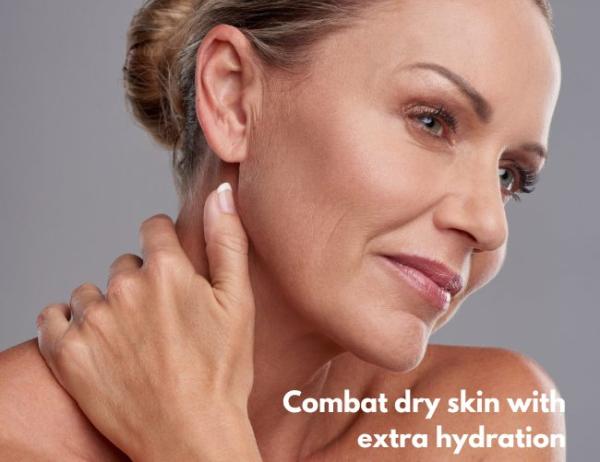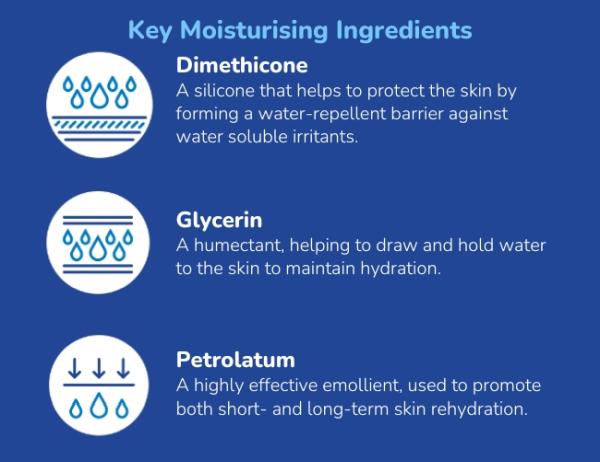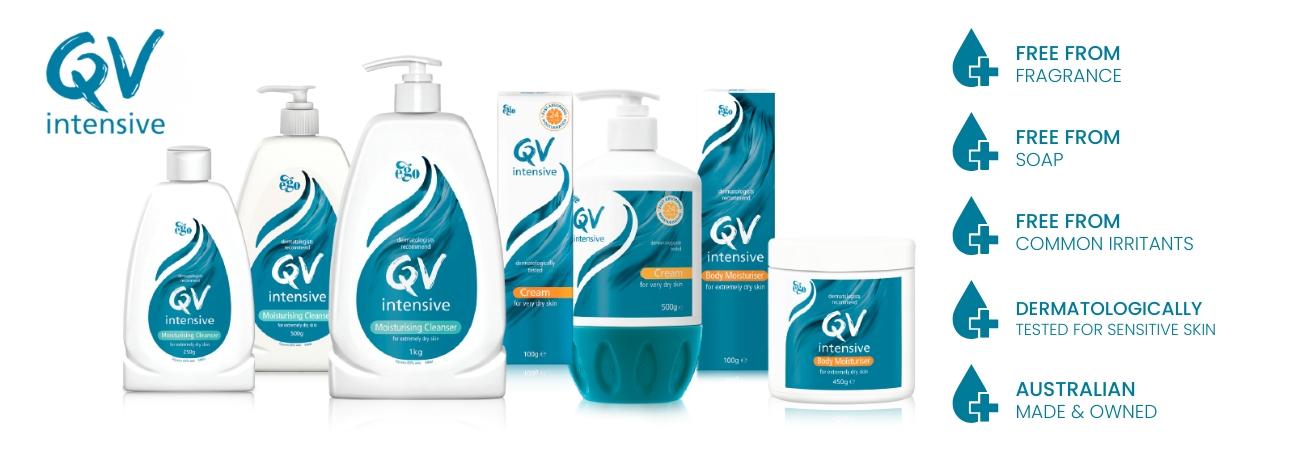Dry skin caused by environmental factors or chronic sky conditions can be annoying, uncomfortable or even painful. Moving between the cold outdoors and an overheated and dry home can aggravate the skin, especially for those with eczema.
What causes dry and itchy skin?
Dry skin and itchy skin often go hand in hand, and they’re more common than you might think. Nearly a third of us, and almost everyone over 60 years, is affected by dry skin.
When the outer layer of skin lacks moisture, small gaps form between the cells and visible cracks appears in the skin’s surface. The underlying causes, though, are many and varied-from seasonal dryness, to the symptoms of a skin condition or side-effects of medication. With extremely dry or irritated skin it’s a good idea to talk to your doctor to work out if anything more serious is going on.
How to care for dry skin?
Fragrances
The best tip for managing dry skin conditions is to skip the fragranced products! The skin barrier, which helps protect us against environmental irritants
and allergens, is weakened when our skin is not properly hydrated, so dry skin is more sensitive to irritating ingredients.
Small fragrance molecules can pass through the skin barrier where they can trigger a hypersensitivity reaction in some people.

Use a pH balanced wash
Our skin naturally has a slightly acidic pH of around 4-5 (pure water is pH neutral), which is great for those beneficial bacteria that live on the skin’s surface and not so great for the harmful microbes, like staphylococcus aureus. Soap, while very effective at removing dirt and oil, has a high pH which can disrupt the skin barrier, causing it to dry out further.
Moisturise, moisturise, moisture!
A good moisturiser is one of the essentials of daily skin care to help maintain the skin’s natural hydration. This helps support the barrier function by protecting the skin from various environmental elements including heat, cold, pollution and wind as well as from irritants and allergens. Vigilantly maintaining a moisturising regime is essential for relieving dry skin. But not all moisturisers are created equal.
A good moisturiser: what are its key ingredients?
The overall purpose of a moisturiser is to help maintain the skin’s hydration and to help improve its protective role by supporting its barrier structure and function.
There are three different types of moisturising ingredients commonly used in skincare products: occludents (like petrolatum); emollients (like paraffinum liquidum) and humectants (like glycerin). Used alone, they can provide short-term hydration for dry skin, but when combined they work together to mimic the way skin naturally hydrates itself.
Emollients fill in rough gaps between the skin cells and make skin feel smooth but do not affect the overall water content. Humectants sponge up water, drawing it up from the deeper layers of the skin to the skin’s surface. Occlusives/occludents hold water in and create a protective barrier over the skin, slowing the escape of water from the surface of the skin. Together, they create a protective layer on the skin to make sure that the moisture that has been trapped in the skin does not leave the skin throughout the day.

Click on the image above to explore entire range of EGO Pharmaceuticals available from Surgical House
Skin Care by Ego Pharmaceuticals
Made in Australia for over 70 years, EGO Pharmaceuticals formulate all their moisturisers with a triple moisturising system (containing a combination of emollients, humectants and occlusives) while excluding soap, fragrance, colour, irritants or other ingredients that may trigger skin reactions and irritation.
The levels of the ingredients in the triple moisturising system can be adjusted depending on the dryness of the skin. For example, their QV brand is ideal for regular, everyday skin or minor skin conditions while QV Intensive range is suited to extremely dry, cracked or irritated skin. QV Intensive offers the highest level of the moisturising system ingredients.
Take a fresh look at your moisturising regimen – it may be that during the winter months if your skin is more dry you either need to use something heavy duty such as an QV Dermcare Ointment or possibly a QV Intensive Cream and moisturise more frequently.
Content for this article was supplied by EGO Pharmaceuticals.
References
For more information visit:
https://https://www.qvskincare.com.au/articles/healthy-beautiful-skin/dry-skin.html
Disclaimer
This website does not provide medical advice. The information, including but not limited to, text, graphics, images, and other material contained on this website,
is for informational purposes only. No material on this site is intended to be a substitute for professional medical advice, diagnosis, or treatment.
Always seek the advice of your physician or other qualified health care provider with any questions you may have regarding a medical condition or treatment and before
undertaking a new health care regimen. Never disregard professional medical advice or delay in seeking it because of something you have read on this website.


